Get all the latest news on coronavirus and more delivered daily to your inbox. Sign up here.
As the coronavirus pandemic continues its assault across the world, red flags have been raised over the role played by the World Health Organization (WHO) in initially downplaying the virus to appease China and just how effectively its money – funded overwhelmingly by U.S. taxpayers – is spent by the U.N. agency.
President Trump last week threatened to withhold funding from the WHO, insisting that his administration would be “looking into” its operations – igniting a blistering response from its controversial chief Tedros Adhanom Ghebreyesus, who warned that “politicizing” the virus would only result in “more body bags.”
Experts weighed in on the possibility of the U.S. abruptly pulling its majority funding and on the threatened move’s impact on the agency.
“In the short run, not a lot [would change] because WHO management will hope for a change in leadership in November and/or that other nations fill the void,” Dr. Roger Bate, a visiting scholar at the American Enterprise Institute (AEI) and an expert on public health and emerging markets, told Fox News. “Budgets and fiscal years are months, so they wouldn’t feel a problem for a while.”
CORONAVIRUS: US GIVES 10 TIMES THE AMOUNT OF MONEY TO WHO THAN CHINA
In addition to repeating Beijing’s flawed theory on Jan. 14 that “there was no evidence of human-to-human transmission” of the novel pathogen and ignoring warnings from Taiwan, the WHO – a heavily centralized outfit – also failed to necessitate that Chinese officials share the viral strains that would have allowed diagnostic tests to have been produced significantly earlier worldwide.
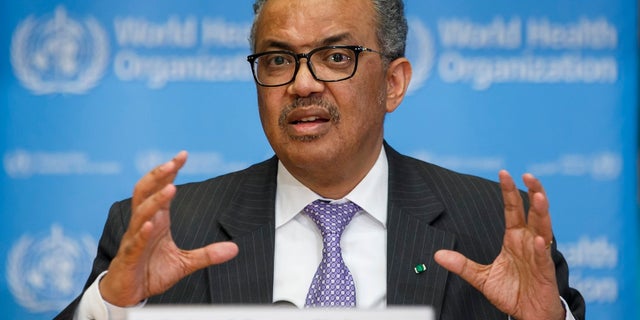
Tedros Adhanom Ghebreyesus, Director-General of the World Health Organization speaks during a news conference on updates regarding on the novel coronavirus COVID-19, at the WHO headquarters in Geneva, Switzerland earlier this month. On Monday, he said the pandemic was “accelerating” as the number of confirmed cases continue to increase. (Salvatore Di Nolfi/Keystone via AP)
Yet many experts also contend that now is hardly the right time for the United States to yank its many millions.
The U.S has been the WHO’s largest funder since it was founded in 1948 and currently gives almost 10 times the amount of money as China, both in assessed and voluntary contributions and which total more than $500 million per year compared to Beijing’s $48 million.
Brett Schaefer, senior research fellow in international regulatory affairs at the Heritage Foundation, also underscored that the U.S.’ total contributions account for 15.9 percent of the organization’s overall budget and the impact would not be immediately crushing.
“This funding would be unaffected because the decision to pull funding would only apply going forward. Nonetheless, suspending funding immediately would represent a big cut to WHO funds right when developing countries, which depend far more on international assistance to address health issues, are being impacted by COVID-19,” he explained. “Although the U.S. is providing significant assistance through other channels, withholding funding to WHO could negatively impact the COVID-19 response in these countries.”
But even with all the money voluntarily poured in from the U.S., the Bill and Melinda Gates Foundation and other countries and organizations such as South Korea, Australia, and Japan, there have been murmurs in the sustainable health world that even that is not enough.
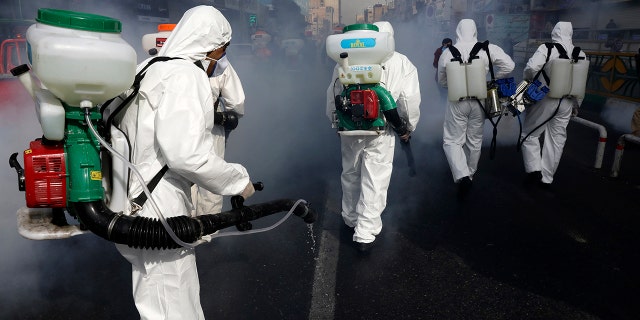
Firefighters disinfect a street against the new coronavirus, in western Tehran, Iran, Friday, March 13, 2020. The new coronavirus outbreak has reached Iran’s top officials, with its senior vice president, Cabinet ministers, members of parliament, Revolutionary Guard members and Health Ministry officials among those infected. The vast majority of people recover from the new coronavirus. According to the World Health Organization, most people recover in about two to six weeks, depending on the severity of the illness. (AP Photo/Vahid Salemi)
Many analysts have highlighted that without the U.S., other member states – all of who are battling to contain the crippling virus within their own borders – likely would not be able to step up and fill the financial void anytime soon. Instead, the burden could fall on private donors such as the Gates Foundation, the Gavi Alliance and even the U.N.’s own Emergency Response Fund.
A November 2018 report published by BioMed Central underscored that the WHO “continues to experience immense financial stress,” and that has consistently illuminated that it is “underfunded,” although its need for financial reform was paramount.
“The WHO must establish its presence as a trustworthy leader in the global health space,” the report stated, acknowledging that member states had declined to dish out more money,” for reasons including “a lack of political will and financial commitment of member states especially by the rich donor countries as they found inefficiency, lack of transparency, and minimal accountability within the organization.”
The report also surmised that the organization has struggled to carry out its mandate as a result of the United States, which “has repeatedly opposed WHO taking any action which might run counter to the interests of transnational corporations,” and has created a “conflict of interest” framework with such maneuvers as opposing the Code on the Marketing of Breastmilk Substitutes, WHO’s rational use of medicines initiative, and its ethical criteria for drug marketing to ensure that pharmaceutical companies can profit.
CLICK HERE FOR COMPLETE CORONAVIRUS COVERAGE
According to the WHO’s own admission, internal audits are conducted by the Office of Internal Oversight Services and are “designed to add value and improve the Organization’s operations and to enhance the integrity and reputation of the Organization. All systems, processes, operations, functions, and activities of the Organization can be subject to IOS review and oversight.”
The most recent accountability report, issued in May last year, ranked majority of programs and regional offices – from Ethiopia, Somalia, Chad, Myanmar, Afghanistan and the global malaria headquarters as being “partially satisfactory.”
Several, such as offices in Yemen and Mongolia and deemed “unsatisfactory,” and Ukraine was stamped with a rare “satisfactory.”
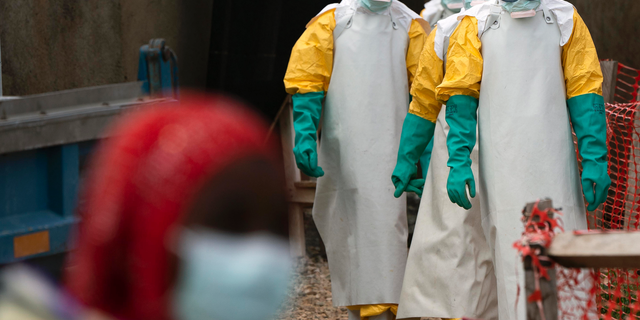
In this Tuesday, July 16, 2019 photo, health workers dressed in protective gear begin their shift at an Ebola treatment center in Beni, Congo DRC. The World Health Organization has declared the Ebola outbreak an international emergency after spreading to eastern Congo’s biggest city, Goma, this week. More than 1,600 people in eastern Congo have died as the virus has spread in areas too dangerous for health teams to access. (AP Photo/Jerome Delay)
Moreover, the U.N. agency – as revealed in internal rather than published reports obtained by the Associated Press last year – found that in 2018 they spent more on travel expenses – occasionally unauthorized and exploitive on donors’ dimes – than on fight some of the biggest problems in public health.
CORONAVIRUS UNKNOWNS IGNITE CONCERNS FOR PREGNANT WOMEN, NEWBORNS
In a single year, the “cash-strapped” WHO is alleged to have forked out almost $200 million on jet-setting, with staffers sometimes breaking the agency’s own rules by traveling in business class, booking expensive last-minute tickets, staying in five-star hotels and traveling without approval.
By contrast, that same year, the WHO invested $59 million in curbing tuberculosis and around $71 million AIDS and hepatitis.
“WHO solicits money from countries around the world every year and rarely if ever meets its budget,” lamented Curtis Ellis, an economic expert and policy director with America First Policies and former advisor to the Trump 2016 election campaign. “If the U.S. withheld its money, it would have to recalibrate its actions, and stop its officials from flying business class.”
The U.S. government typically advises officials not to fly business class, but provisions are made under certain circumstances such as disabilities or upgrades at their own expense.
Nonetheless, the WHO purports to spend most of its money on communicable diseases, followed by corporate services and enabling functions, health emergencies, health systems, promoting health through the life course, non-communicable diseases; and an array of other areas such as polio eradication, tropical disease research, and research in human reproduction.
Of the total $6.27 billion in WHO financing, only $554 million – about 9 percent – went to the WHO Health Emergency Program and another $306 million to preventing and controlling outbreaks under the “Humanitarian Response Plans and Other Appeals” budget category.
“In other words, it appears that less than 15 percent of WHO financing in 2018-2019 was directed at detecting and combatting international pandemics. More funds went to Corporate Services and Enabling Functions that to the WHO Health Emergency Program,” Schafer noted.
Other health issues that the WHO dedicates resources to include: equity, social determinants, gender equality, and human rights ($21.5 million); reproductive, maternal, newborn, child, and adolescent health ($230 million); violence and injuries, such as those from road accidents, ($27.5 million); and mental health and substance abuse ($50.3 million).
“While these are legitimate health concerns, unlike communicable diseases and pandemics, they are primarily a domestic health matter and do not pose a threat to spread from one country to another,” Schafer said. “The focus of WHO should be on truly international threats to health.”
From his lens, instead of ending funding during the current crisis, the U.S. should condition future financing for the approval and completion of an investigation into the WHO response to COVID-19 and the potential influence of China over its decisions, revision of WHO policies to enable it to respond more quickly to emerging pandemics and restructuring WHO financing to concentrate on communicable diseases and responding to international health emergencies.
“If WHO refuses, the U.S. should explore setting up a new international organization focused on communicable diseases and responding to international health emergencies,” Schafer said.
Members of the Trump team are said to be compiling information and crafting options to present to the president with regards to what to do about WHO’s funding and working to untangle the multipronged funding stream as it is not submitted to them in a single lump sum. No financial decisions have yet been made.
According to Brett Bruen, a former U.S. diplomat who previously served as director of global engagement at the White House and now runs communications firm Global Situation Room, freezing the finances now is akin to “suggesting we pull out of NATO in the middle of the battle against the Taliban.”
“Sure, we would like them to do more and can get frustrated with multilateral diplomacy. But, they are critical to our fight, and WHO is essential to turning the tide against COVID-19. There is no path out of this epidemic on our own. We need other countries,” he stressed. “There is no substitute for the WHO. WHO has its challenges, but for now, it’s our best hope for ending this crisis quickly.”

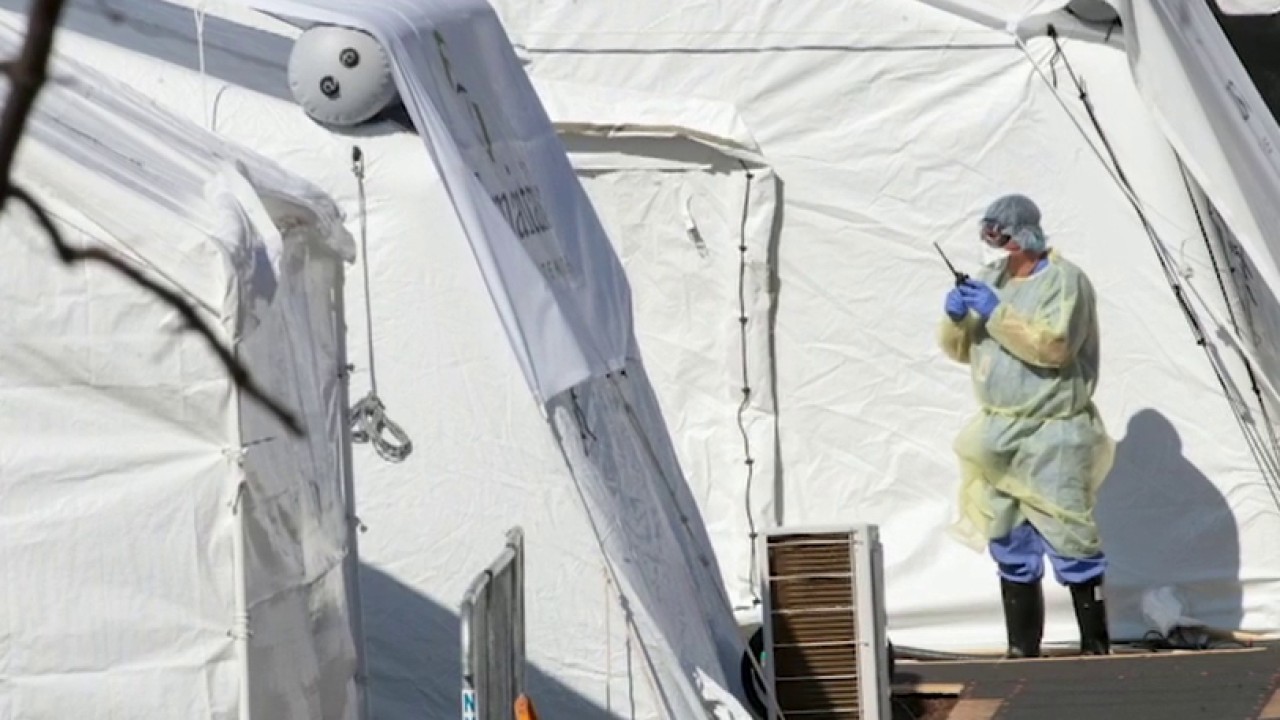

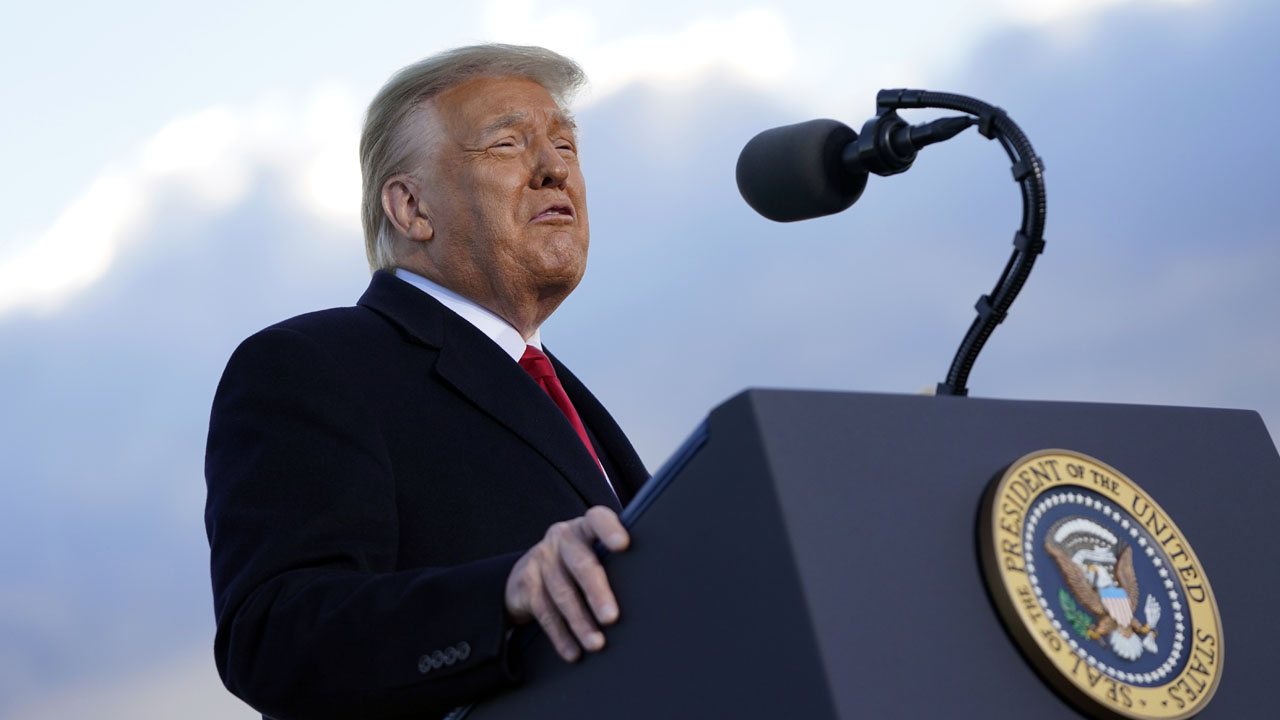

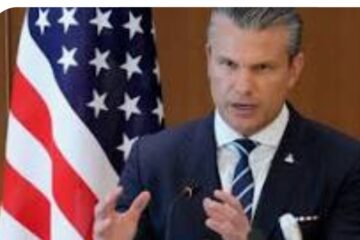
552040 462687certainly like your website however you need to test the spelling on several of your posts. 64140
884928 361619You completed certain very good points there. I did searching on the topic matter and located most persons will go together together with your blog 30648
705169 654390I adore foregathering helpful info , this post has got me even a lot more info! . 977183
615702 893852Hey, you used to write fantastic, but the last couple of posts have been kinda boringK I miss your super writings. Past several posts are just slightly bit out of track! come on! 505571
246403 108976An incredibly fascinating go via, I could not concur entirely, nonetheless you do make some truly legitimate factors. 649864
176230 873128Extremely interesting subject , thanks for putting up. 744366
261521 123740Dude.. My group is not considerably into looking at, but somehow I acquired to read several articles on your blog. Its great how fascinating it is for me to go to you fairly often. 261418
246178 56049Superb weblog here! Also your website loads up quite rapidly! What host are you utilizing? Can I get your affiliate link to your host? I wish my internet site loaded up as quickly as yours lol xrumer 3816
252265 380950Howdy just wanted to give you a brief heads up and let you know a couple of of the pictures arent loading properly. Im not confident why but I feel its a linking issue. Ive tried it in two different web browsers and both show exactly the same outcome. 138017
I started taking https://www.cornbreadhemp.com/collections/thc-drinks a little while ago just to discover what the hype was thither, and now I truly look cheeky to them preceding the time when bed. They don’t bang me escape or anything, but they make it so much easier to cold and fall asleep naturally. I’ve been waking up perception feature more rested and not sluggish at all. Even-handedly, friendly of want I’d tried them sooner.
360708 175917Bereken zelf uw hypotheek. Hypotheek berekenen? Maak snel een indicatieve berekening van het maximale leenbedrag van uw hypotheek. 419307
403244 279651You produced some decent points there. I looked online for your problem and located most people will go together with with the site. 480952
I’ve been using mushroom weed gummies constantly on account of during the course of a month now, and I’m justifiably impressed before the uncontested effects. They’ve helped me feel calmer, more balanced, and less restless in every nook the day. My saw wood is deeper, I wake up refreshed, and sober my core has improved. The attribute is outstanding, and I cognizant the sensible ingredients. I’ll definitely preserve buying and recommending them to everyone I recall!
866053 727487After study a lot of of the content in your web website now, and i also truly significantly like your way of blogging. I bookmarked it to my bookmark website list and are checking back soon. Pls take a appear at my web page also and inform me how you feel. 26981